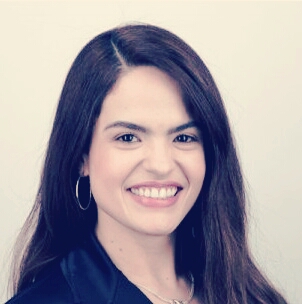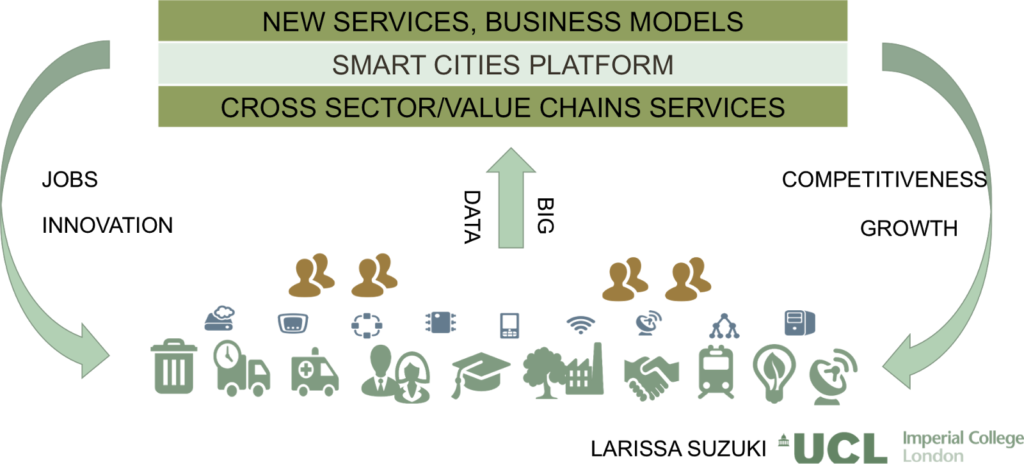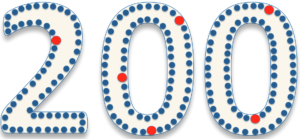6 out of 200: Larissa Romualdo Suzuki makes cities smarter

 Meet Larissa Romualdo Suzuki in this Q&A series with 6 out of 200 computer scientists and mathematicians participating at the 4th Heidelberg Laureate Forum, September 18-23, 2016. 22 Laureates (Abel Prize, Fields Medal, Nevanlinna Prize, Turing Award) will attend the forum together with them. For a full week, Heidelberg in Germany will be the hot spot of mathematics and computer science.
Meet Larissa Romualdo Suzuki in this Q&A series with 6 out of 200 computer scientists and mathematicians participating at the 4th Heidelberg Laureate Forum, September 18-23, 2016. 22 Laureates (Abel Prize, Fields Medal, Nevanlinna Prize, Turing Award) will attend the forum together with them. For a full week, Heidelberg in Germany will be the hot spot of mathematics and computer science.
What is your name and where are you from? My name is Larissa Romualdo Suzuki, I am from Brazil.
Where did you study and where are you currently based? I studied at the University of Sao Paulo and I am currently at University College London, where I also did my PhD.
What is your current position? I am a Research Associate.
What is the focus of your research? The focus of my research is data infrastructures for smart cities. The systems that operate the infrastructure of cities have evolved in a fragmented fashion across several generations of technology, causing city utilities and services to operate sub-optimally and limiting the creation of new value-added services. My research has pioneered systematic business models and reference architecture frameworks to guide the design of large and highly interconnected data infrastructures which are provided and supported by multiple stakeholders.
The goal is that data, analysed by a suitable framework, can offer new insights and ways of delivering better services to citizens – from public health and social care, to refuse collection, public transport, and to retail in the private sector. Our capacity to understand how people live and places work, and to create economic impact and social value from data and technology has never been stronger.
However, the lack of integration that often causes city utilities and services to operate sub-optimally, limiting the creation of new value-added services, increasing transport costs, damaging existing logistics chains and economic models. Data infrastructures offer a new wave of opportunities to mitigate some of these impacts and create a balance between social, environmental and economic opportunities that will be delivered through smart city planning, design, and construction.

The framework created in my PhD thesis has created a design of a data infrastructure for the Greater London Authority. This data infrastructure will enable intelligent decisions in the urban environment, reduce the cost and environmental impact of development, and improve its quality to benefit residents and businesses alike. It gives architects, planners and consortia of design and construction companies the ability to better collaborate on the basis of common, accurate data to design and build more sustainable and cost effective buildings (e.g. real time data on energy consumption, and assets operation and its efficiency), transport (e.g. real time data provided by the Transport for London, and real time and historical datasets which provide insights on service quality level) and other infrastructure(e.g. air pollution data, traffic jams, population growth data, mobility data from telecom providers). Its rich data will form the basis for the creation of valuable new businesses through integrated services.
Why did you become a computer scientist? Technology is part of just about everything that touches our lives from phones, cars, movies, games. It influences how we do business and communicate with other people and solves the most impactful problems in the world, like creating clean energy or detecting cancer. Computer scientists get to dream up all the amazing inventions no one thought of, and just make them. This fast-pace innovation of technology has amazed me, and attracted me to become a change maker and create the technologies that are changing the world.
What are you doing besides research? I am currently working on the real-world implementation of one of the case studies of my thesis. I am based at the London City Hall where I am responsible for the “Data for London” project, one that will deliver a large scale data infrastructure to help to solve London’s urban challenges, save public money, incubate innovation and drive economic growth.
What do you see yourself doing in 10 years? Throughout my career I have committed myself to become a world-class professional and academic with a rigorous devotion to excellence. In 10 years’ time I hope to be Faculty member of a leading University, where I can transfer my knowledge to other people and do research for the benefit of mankind.
Why did you apply for the HLF? My participation in this Forum will allow me to engage with a leading community of scientists in computer science and mathematics and observe how they conduct research, develop leaders and disseminate their ideas. I really enjoy participating in intellectually demanding scientific events and want to continue building up my career as I love the academic environment, teaching and researching.
What do you expect from this meeting? Besides learning more about the advancements in computer science, I will have access to highly important leaders in my field of expertise and a large research network which I hope to obtain long lasting connections with for future research and professional endeavours. Being among top professionals and researchers in my field of study will ensure that I will have the chance to have fruitful discussions about the current state and future of computing.
Which laureates present at the forum would you really like to talk to? I really would like to meet and speak to Professor Barbara Liskov!  She is one of the top women in computer science, and one of the world’s leading authorities on computer language and system design. I would like to talk to her about her pioneering work in distributed systems which have significantly influenced advanced system developments.
She is one of the top women in computer science, and one of the world’s leading authorities on computer language and system design. I would like to talk to her about her pioneering work in distributed systems which have significantly influenced advanced system developments.

